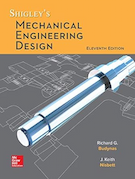The Role of Technology in Modern Engineering Practice
Technology is an ever-evolving field, and it has had a profound impact on the way that engineers design, build, and maintain the structures, machines, and systems that make up our world. From the earliest days of engineering, technological advancements have driven progress and enabled new solutions to previously intractable problems. Today, technology is more essential to engineering than ever before, and it is critical for engineers to stay abreast of the latest developments and understand how to apply them in their work.

Computer-Aided Design (CAD) Software
One of the key ways that technology has changed the field of engineering is through the use of computer-aided design (CAD) software. This software allows engineers to create detailed 3D models of structures and machines, which can then be used to analyze and optimize their designs. The use of CAD has greatly increased the efficiency and accuracy of engineering design work, and it has made it possible to create designs that were previously not feasible.
Analysis Software
Analysis software has also become widely available in recent years and has transformed the way that engineers develop systems. Finite Element Analysis (FEA) software is used to analyze stresses and deflections in structures and Computational Fluid Dynamics (CFD) software is used to analyze fluid flow and its interactions with objects. Other software packages such as MechaniCalc provide calculators for many common analysis tasks including beam analysis, bolted joint analysis, lug analysis, fracture mechanics, and more.
Advanced Materials
Another area where technology has had a major impact is in the development of advanced materials. Today, engineers have access to a wide range of materials, including composites, high-performance polymers, and nanomaterials, which have unique properties and are suitable for a variety of applications. These materials have opened up new possibilities for engineers, enabling them to design and build structures and systems that are stronger, lighter, and more durable than ever before.
The Rise of the Internet and Digital Technologies
The rise of the internet and digital technologies has also transformed the way that engineers work. Today, engineers can collaborate and communicate with colleagues and clients from anywhere in the world, and they can access a wealth of information and resources online. The use of cloud-based software and collaboration tools has made it easier for engineers to work together on complex projects, and it has enabled them to share data and knowledge more easily.
Automation and Robotics
Another area where technology has had a major impact is in the field of automation and robotics. Today, engineers are using robots and other automated systems to perform a wide range of tasks, from assembling products to carrying out complex inspections and repairs. This has greatly increased the efficiency and accuracy of many engineering processes, and it has made it possible to complete tasks that would have been difficult or impossible to perform manually.
Sustainability and Environmental Stewardship
In addition to these technological advancements, there has also been a growing recognition of the importance of sustainability and environmental stewardship in engineering. Today, engineers are working to develop new technologies and systems that are more energy-efficient and sustainable, and they are taking into account the long-term impacts of their work on the environment.
PDH Classroom offers a suite of online continuing education courses tailored to engineers. These courses can be used to fulfill PDH credit requirements for maintaining your PE license, or just as a part of staying ahead in your field.
Technology plays a critical role in modern engineering practice, and it is essential for engineers to stay abreast of the latest advancements and understand how to apply them in their work. Whether through the use of engineering software, advanced materials, digital technologies, automation, or sustainability initiatives, technology continues to drive progress and enable new solutions to the complex challenges that engineers face. As the field continues to evolve, it will be important for engineers to stay up to date with the latest developments and be prepared to embrace new technologies as they emerge.




